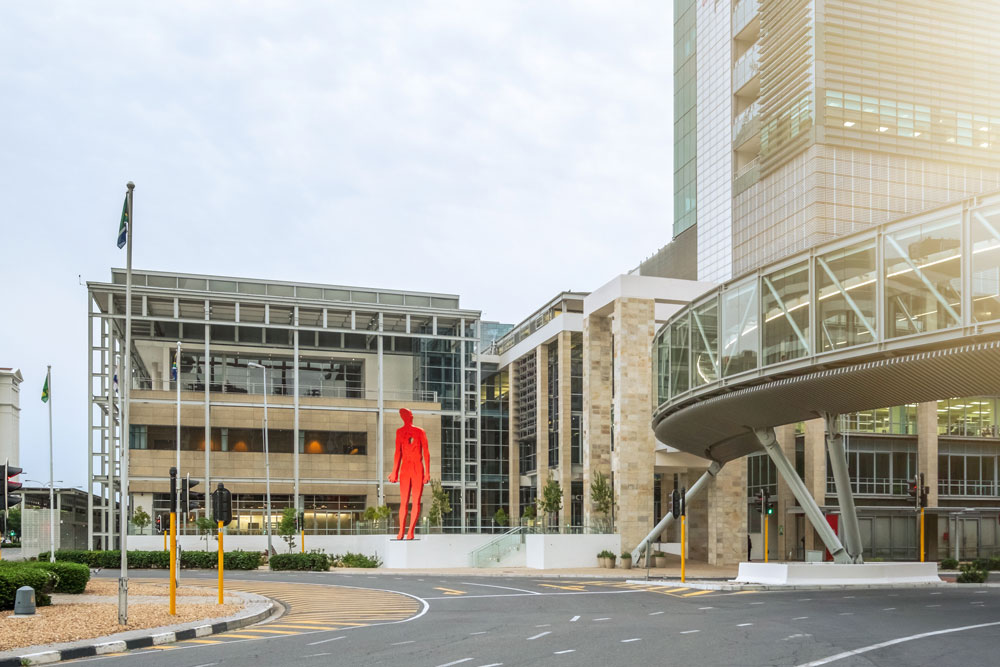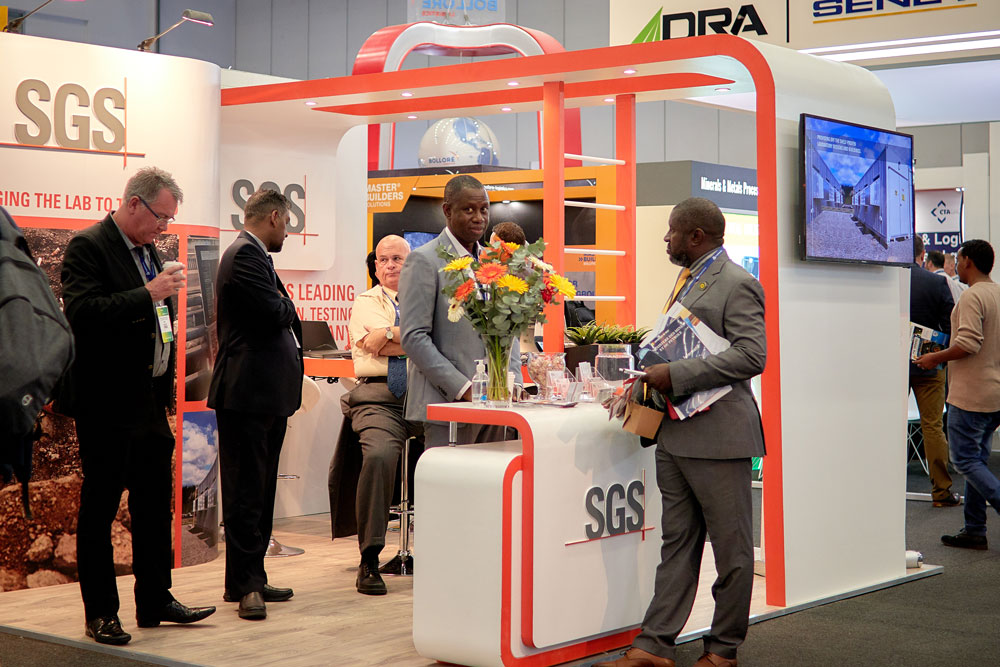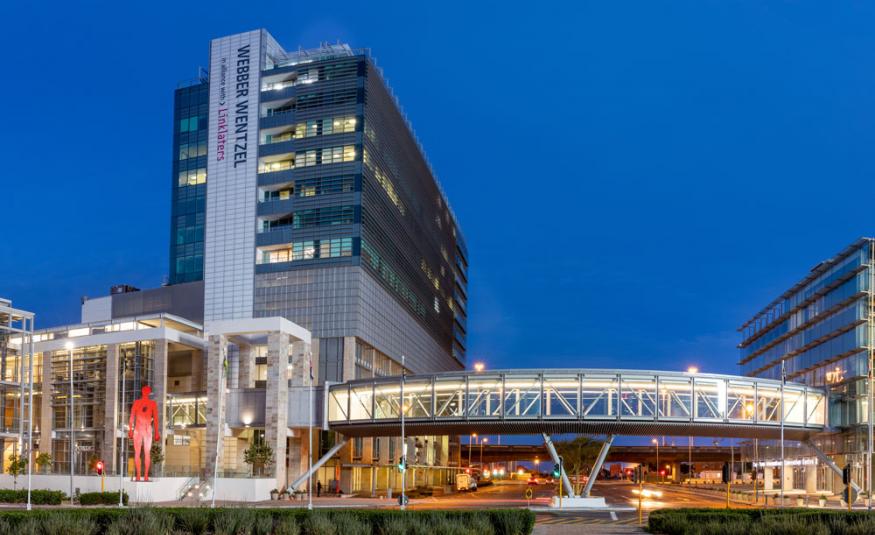Taubie Motlhabane, CEO of Cape Town International Convention Centre, talks to EW about her career in exhibitions, and taking over the role of CEO during a pandemic.
 Tell us about your early life and career?
Tell us about your early life and career?
I was born in the North West Province of South Africa, and that is where I attended school and university.
My first jobs were in public relations, broadcast and print media. There I learned about the value of customer service as well as the power of media in promoting brands, both extremely important in the tourism industry.
My subsequent roles as head: conferences and protocol at the South African Reserve Bank; events and marketing manager for the City Centre Hotel in Manama, Bahrain; events specialist at Absa Bank South Africa; head of events at the City of Ekurhuleni; head of the Tshwane Convention & Visitors Bureau (Pretoria) and business tourism manager at South African Tourism all cemented my passion for this industry.
What was an early project you are particularly proud of and an early defining career moment?
I was proud to be part of the conceptualising and building of, and ultimately the management of, the South African Reserve Bank Conference Centre. This was the first strong break into the business events industry and prepared me for the role I now occupy.
Another project was the establishment of Association Day at Meetings Africa, an association educational and networking platform created for the African Associations Industry. This was one of my “babies” during my time at South African Tourism. This platform has grown into one of the major highlights for Meetings Africa.
Who was your first industry mentor and what early lesson did you learn in your career?
There are two people. First, Mr Tito Mboweni when I worked at the South African Reserve Bank Conference Centre. It was there that I understood the power of conferences as catalysts for the knowledge and visitor economies.
Second, and an even more impactful influencer and mentor, was Ms Nomasonto “Sonto” Ndlovu, who hired me as the SAT business tourism manager: association and inter-governmental meetings. I owe a lot of my knowledge and expertise in this sector to her. She continues to be a great friend and mentor.

Tell us about your role at Tshwane CVB. What was your biggest achievement and biggest challenge there?
My role as executive director for the Tshwane Convention and Visitors was to develop the marketing strategy for the City of Tshwane as a preferred destination for business and leisure events.
I would say my biggest achievement was the development of the CVB strategy and leveraging the unique selling proposition of Tshwane (the country’s research and academic hub and the only city with a Big-5 game reserve within its municipal borders).
Another memorable achievement from my tenure was pioneering the City of Tshwane’s first-ever participation in the Global Destination Sustainability Index, which brought international attention to Tshwane’s sustainability ranking.
There are always challenges. Legislative restrictions and red tape sometimes meant that we missed great opportunities for the destination. However, I am proud to say I worked with a team that had a winning attitude and made the impossible happen.
South Africa’s MICE offer has grown tremendously, and thanks to the development of more CVBs and most importantly, the National Convention Bureau, led by Ms Amanda Kotze-Nhlapo, we are a real global contender and we can host any size of global event on our shores.
You had about three months at the helm of CTICC before the pandemic took hold. How has that been?
Before I joined, the CTICC, led by former CEO Julie-May Ellingson had a good Q1 and Q2 of the 2019/2020 financial year. When I joined in January 2020, the company was also set for a good third quarter and it was. However, our plans for the remaining fourth quarter of our financial year were disrupted by the global pandemic, and the travel and tourism industry was brought to a halt.
I am fortunate that I took over a very successful organisation as CEO. The CTICC is a well-oiled machine with an exceptionally capable and dedicated team. My top priority was the strengthening of stakeholder and industry relationships. If you look after your clients and stakeholders when times a good, they will look after you when times are hard.
A lot of events at the CTICC were postponed instead of cancelled, which is a testament to great relationships.
Like most organisations around the globe, we were shell-shocked by the impact of Covid-19 on our business, communities, industry and the economy. However, we needed to adapt quickly and the CTICC quickly embraced the saying “don’t let a good crisis go to waste” in our response to the pandemic’s impact.
In partnership with the national, provincial and municipal governments, we converted CTICC 1 into a Covid-19 field hospital. The Hospital of Hope was constructed in a space of six week and was Africa’s biggest Covid-19 field hospital, with 862 beds. This initiative did not only assist in ensuring that our venue earned some much-needed revenue during a difficult time, but the CTICC had the privilege of being part of the solution in the battle against Covid-19.
We also realised that during the Covid-19 lockdown, the plight of the poor became heightened in our city. So, when we were approached by Ladles of Love, a local NPO and soup kitchen to sponsor space for them to use to prepare meals for distribution to some of the Cape’s most at-risk communities, the answer was an immediate yes. We provided one of our exhibition halls and a kitchen in CTICC 2 free of charge. This enabled Ladles of Love to increase their output from 200 meals a day to well over 2,000 meals a day.
How do you see the future at the CTICC? Is the government able to support the industry and the venue through these difficult times and how have you adapted in terms of safety and hygiene and pivoting to offer digital solutions for event organisers?
We are cautiously optimistic, although all are going through a very tough time. We continue to build a strong pipeline of bookings.
Although we are a government entity, our government has had to endure a huge financial burden to fight the Covid-19 crisis. As such, we are not rushing to them with cup-in-hand. We are working very hard to come up with a recovery plan that will ensure minimum need for financial assistance. This is an opportunity to build our resilience.
All visitors to the CTICC are expected to adhere to our health, hygiene and safety protocols, which include (but are not limited to) pre-arrival screening, compulsory wearing of face masks and observing of social distancing within the facility. These protocols are actively encouraged by our Covid Monitors, who assist visitors. The CTICC has recently been afforded the opportunity to use the WTTC Safe Travels stamp, in recognition of our readiness to host events safely.
The CTICC has recently included a virtual and hybrid events offering.
What are your new priorities and strategies for emerging from the crisis?
We are doing everything to retain business and we have secured three bids during the lockdown period. We are also exploring new ways to re-purpose our spaces to attract new revenue streams.
The CTICC’s contribution to the South African GDP was R5.5bn in the last financial year (2019/2020), an amount calculated based on multiplier effects of induced tourism, as well as direct and indirect job creation. Our contribution to the regional economy of the Western Cape (GGP), has grown from R4.5bn in 2018/2019 to R4.9bn in 2019/2020, up almost 9% y-o-y.
The CTICC remained closed for business during a six-month lockdown period from March 2020 and this has had a significant impact on our income. Based on events held and contracted in the previous financial year, we were on target to achieve a revenue of R285m. However, we achieved a R214.3m, a 24.9% drop in revenue.

Cape Town has suffered in the past from power supply issues and a perception of a security threat to delegates. How are you trying to combat this?
The CTICC has been fortunate enough that they have never been impacted by the power supply issues. We have our own power generators that can provide enough electricity should the need arise.
Crime is a problem in big cities throughout the world and the City of Cape Town has to contend with this as well. The Cape Town Central City Improvement District (CCID), works with the South African Police Service to improve safety of visitors and offers assistance to tourists within the CBD through their private security contractors.
How have relations been with international exhibition organisers? What has been your policy on cancellations and postponements?
While we are an industry leader, we value collaboration with our industry partners. Covid-19 has been a catalyst to strengthening industry relationships of old and forging new ones. The industry now appreciates that working together to win together is the most intelligent thing we can do.
In the spirit of collaboration, we have re-looked at our policy on cancellations and postponements to ensure that we empower event organisers and owners to secure the life of their events and their residency with the CTICC. It is clearly to our benefit to find a way that they can continue their events without prohibitive penalties and it has been heart-warming to see how the industry has been loyal to the CTICC.
What are your hopes for the next couple of years as we hopefully recover?
My hope is that the recovery of our industry is not too slow. The MICE industry is an important driver in the economy. We provide jobs that are very much needed especially at this time.
Our priority is to get the CTICC back to its operational health so we can continue to contribute to South Africa’s GDP and the Western Cape’s GGP. We will focus on finding new ways of doing business and innovating in the space of events.
We have HOPE and we will work hard to ensure that our hope becomes reality.





